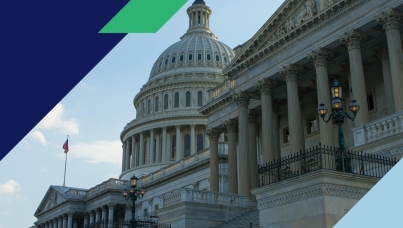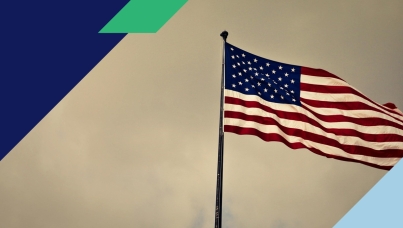

Small businesses show rising optimism but concerns over cash flow and investments remain
Washington, DC, September 23, 2025 — The Q3 2025 MetLife/U.S. Chamber of Commerce Small Business Index is 72.0, up from last quarter’s Index score of 65.2. The current Index score is in line with sentiments from this time last year (71.2). Small businesses are more optimistic about their view of the U.S. economy and their local economies compared to the previous quarter. There is also a slight increase in the number of owners and decision makers that expect to increase revenue in the next year. Notably, more now report being very comfortable with their current cash flow compared to earlier this year. Outlooks around other business expectations and business operations are more stable.
This quarter, inflation continues to be the biggest challenge facing small business owners. Concern about inflation was stable compared to last quarter, though it does continue to sit lower than it did in Q1 2025, when it reached an all-time high. However, slightly more businesses are reporting negative impacts due to rising prices than did last quarter. At the same time, the most-cited roadblocks to growth are cost of goods and services, along with materials.
When it comes to making decisions around what to invest in, most say that it is very important to invest in marketing and sales, in-person customer experience, and materials and inventory. These are also the areas where small business owners say they are focusing most of their financial investments right now. One signal of potential optimism among these small business owners: more rate their access to capital as good and say it is easier to access capital, compared to Q1 2023.
For more information about this study, please click here.
About the Study
These are the findings of an Ipsos poll conducted between July 24th to August 11th, 2025. For this survey, a sample of 695 small business owners and operators age 18+ from the continental U.S. Alaska and Hawaii was interviewed online in English.
The sample was randomly drawn from partner online panel sources that specialize in B2B sample and does not rely on a population frame in the traditional sense. Ipsos uses fixed sample targets, unique to the study, in drawing sample. Small businesses are defined in this study as companies with 500 or fewer employees that are not sole proprietorships. This sample calibrates respondent characteristics to be representative of the U.S. small business population using standard procedures such as raking-ratio adjustments. The source of these population targets is U.S. Census 2020 Statistics of U.S. Businesses dataset. The sample drawn for this study reflects fixed sample targets on firmographics. Post-hoc weights were made to the population characteristics on region, industry sector and size of business. Additional post-hoc weights were made to the population characteristics on the gender of the business’s owner and whether the business is minority-owned or not. The source of these two weight variables is the Small Business Administration’s 2022 Small Business Profiles.
Statistical margins of error are not applicable to online non-probability polls. All sample surveys and polls may be subject to other sources of error, including, but not limited to coverage error and measurement error. Where figures do not sum to 100, this is due to the effects of rounding. The precision of Ipsos online polls is measured using a credibility interval. In this case, the poll has a credibility interval of plus or minus 4.6 percentage points for all respondents. Ipsos calculates a design effect (DEFF) for each study based on the variation of the weights, following the formula of Kish (1965). This study had a credibility interval adjusted for design effect of the following (n=695, DEFF=1.5, adjusted Confidence Interval=+/-6.1 percentage points).
Starting with the March 2020 survey, small business decision makers are reached via an online survey, in place of the typical phone-based approach. This methodological shift is in response to lower anticipated response rates in dialing owners at their businesses as a result of mandated closures related to the COVID-19 outbreak. While significant changes in data points can largely be attributed to the recent economic environment, switching from a phone to online approach may have also generated a mode effect.
For more information on this news release, please contact:
Mallory Newall
Vice President, US
Public Affairs
+1 202 374 2613
About Ipsos
Ipsos is one of the largest market research and polling companies globally, operating in 90 markets and employing nearly 20,000 people.
Our passionately curious research professionals, analysts and scientists have built unique multi-specialist capabilities that provide true understanding and powerful insights into the actions, opinions and motivations of citizens, consumers, patients, customers or employees. Our 75 business solutions are based on primary data from our surveys, social media monitoring, and qualitative or observational techniques.
“Game Changers” – our tagline – summarizes our ambition to help our 5,000 clients navigate with confidence our rapidly changing world.
Founded in France in 1975, Ipsos has been listed on the Euronext Paris since July 1, 1999. The company is part of the SBF 120, Mid-60 indices, and is eligible for the Deferred Settlement Service (SRD).
ISIN code FR0000073298, Reuters ISOS.PA, Bloomberg IPS:FP



